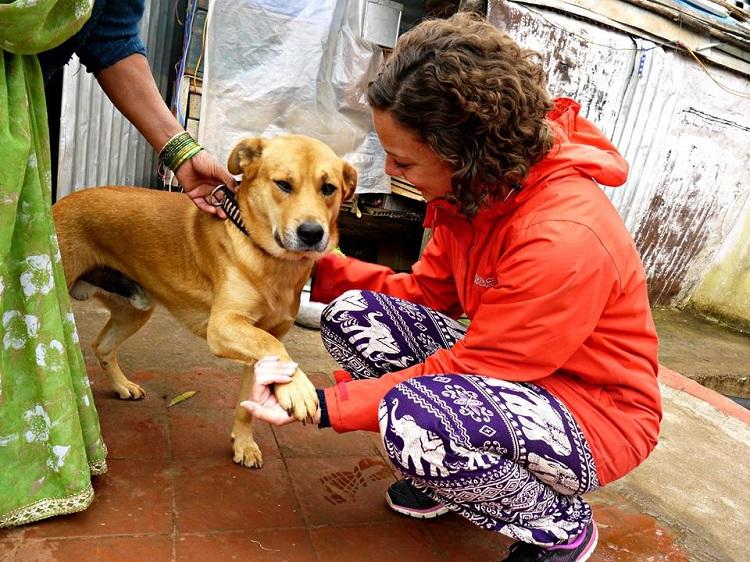Lecturer at Bath College volunteers with the Worldwide Veterinary Service in India

Veterinary nurse Helen Jenkins is back at Bath College getting ready to welcome new students after spending the summer volunteering at an animal birth control and emergency centre in India.
Miss Jenkins, a veterinary nursing lecturer at the college, spent two and a half weeks working with the Worldwide Veterinary Service in Ooty, twelve hours from Bangalore airport.
She was there to support surgical training courses for vets and vet students at the International Training Centre (ITC), teaching patient care, anaesthesia, aseptic techniques and surgical suture.
Animal welfare organisations are advocating neutering programmes in India, where there are up to 20 million stray dogs and post-bite immunisations cost the economy over $25 million a year.
Miss Jenkins, who helped with the neutering programme at the ITC, said: “I volunteered because I love animals and wanted to utilise my skills to give back and support developing countries in promoting animal health and welfare.
“One of the main obstacles in large scale and sustainable dog sterilization programmes has been the lack of competent surgeons that are able to operate dogs without postoperative complications.
“Our morning would start at 7am, when we would do rounds to carry out pain assessments on the dogs we had neutered the day before.
“We neutered 24 dogs a day while running an emergency clinic, where local people could bring their pets.”
Miss Jenkins also volunteered with the charity Mission Rabies, which has vaccinated more than 100,000 dogs in India since September 2013.
Her nursing work for the Worldwide Veterinary Service in India will count towards her CPD (Continuing Professional Development) for the Royal College of Veterinary Surgeons.
In February, she will travel to Gambia to volunteer for the Horse and Donkey Trust.
Miss Jenkins said: “I really enjoyed the vaccination drive with Mission Rabies, helping local people in their community. It was fantastic to be part of their work to eliminate rabies, which causes the deaths of around 61,000 people per year.
“We are very lucky in the UK. Working in India was completely different, electricity was intermittent and sometimes we didn’t have running water.
“In the UK we use anaesthetic machines to maintain patients during anaesthesia, but in India we maintained the animals on injectable anaesthesia every eight to ten minutes.
“It was very cold so we struggled with hypothermia. In some cases, this caused their heart rate to decrease resulting in a critical recovery time for the patient. We kept them warm using hessian sacks and hot water bottles.
“It was an inspirational trip of a lifetime and I would urge everybody to take part in volunteering.”












Responses